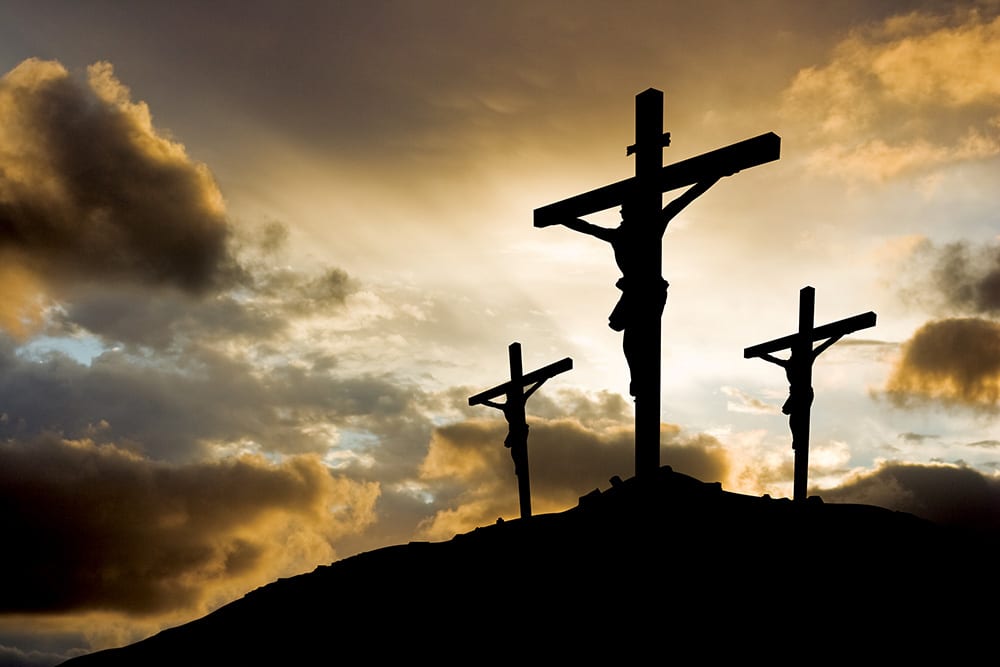Even if you think everything is collapsing, ran a meme that recently went round, “nothing is collapsing at all, because God doesn’t lose battles.” It was intended to comfort and encourage, and many people obviously felt it did.
It seems to me that it can’t truly comfort because it’s not true. It’s an example of a popular type of Christian meme and slogan. This type slides our eschatological hope into this world in a way that erases our experience of life in this world.
It’s the meme parallel of the sloppy funeral homily that treats the departed as if he were a saint already in heaven. It may comfort the people who lost him, but it’s generally not true. I love my family and friends, but I have to admit that there’s not a high percentage of saints among them.
That untruth matters, because it discourages those still on earth from praying for the departed’s (we hope) purgatory-bound soul. It treats our eschatological hope for his salvation as if it were a fact we know already. That’s not real hope. That’s a delusion.
So is the idea that nothing is collapsing and God doesn’t lose battles. Everything can collapse. God does lose battles. Or more precisely, for his own mysterious purposes, he lets us lose them. See the Book of Job. And we lose them all the time. Even though we trust God will win the war, his people sustain huge losses on the way to victory.
“God doesn’t lose battles” is Christian happy talk. It’s closer to a sales pitch than a statement of the Christian faith. It’s not harmless. It hurts people who believe it, when they lose a battle they thought they should win. Some feel that Christianity doesn’t do what it promises, that it’s all wishful thinking, and a good many of those people drift away from the Faith or throw up their hands and walk out.
More accurate is the Anglican T.S. Eliot’s insight. He asks us to take “the widest and wisest view of a Cause.” Everything that happens to us is the result of a vast number of causes that go very far back in history. We can only see a few of them, and even then we’re just guessing.
We live in history. We live in fallen history. Stuff happens, as a once-popular bumper sticker put it more rudely. God only rarely intervenes to change our history. What he has done is enter our history himself, in which to all appearances he lost a big battle, as the way to winning the war.
He lives with us in our history, especially in our suffering, in the battles we lose. We speak of the Mass as a medicine, because it’s a gift to those wounded in battle.
Eliot added another insight. Though we may lose battle after battle, the other side never wins the war. As he put it, “There is no such thing as a Lost Cause because there is no such thing as a Gained Cause.” Evil may seem to triumph, but it can’t ultimately win.
More profound than that is Tolkien’s insight into “the long defeat,” especially as he portrayed it in “The Lord of the Rings.” The world of Middle Earth was close to complete collapse, close to falling under the power of evil, who would have turned all of Middle Earth into the permanent horror of Mordor.
It was saved by what we would call providence, and that salvation was only possible through extraordinary heroism, especially Frodo’s and Sam’s. (I explain this here.) But even they fail, when at the very last moment, Frodo can’t do what he had to do. The greatest heroism could not bring victory.
That’s the long defeat we experience in this world. But it’s not the last word. The world is saved because Sam showed mercy to Gollum, when showing mercy was the most dangerous thing he could do.
Not everyone sees this. Two people have told me adamantly that Sam should have killed Gollum and that they’d have thrown the ring in the fire. Others seem to feel cheated to find the hero failing. That’s not what they expect in a story. They want Luke Skywalker blowing up the Death Star.
Their only idea of the hero is the victor. They can only understand success as the product of power. The Christian must win, be a winner. He can’t be a “loser.”
The people I’m thinking of were all Christians. How a Christian can’t see the tragic beauty of Frodo’s defeat escapes me.
It’s as if St. Paul had never reported that the Lord told him, “My strength is perfected in weakness.” It’s as if the central symbol of Christianity were not a device designed to torture and kill. As if they didn’t believe in the Resurrection.
David Mills writes from Pennsylvania.





